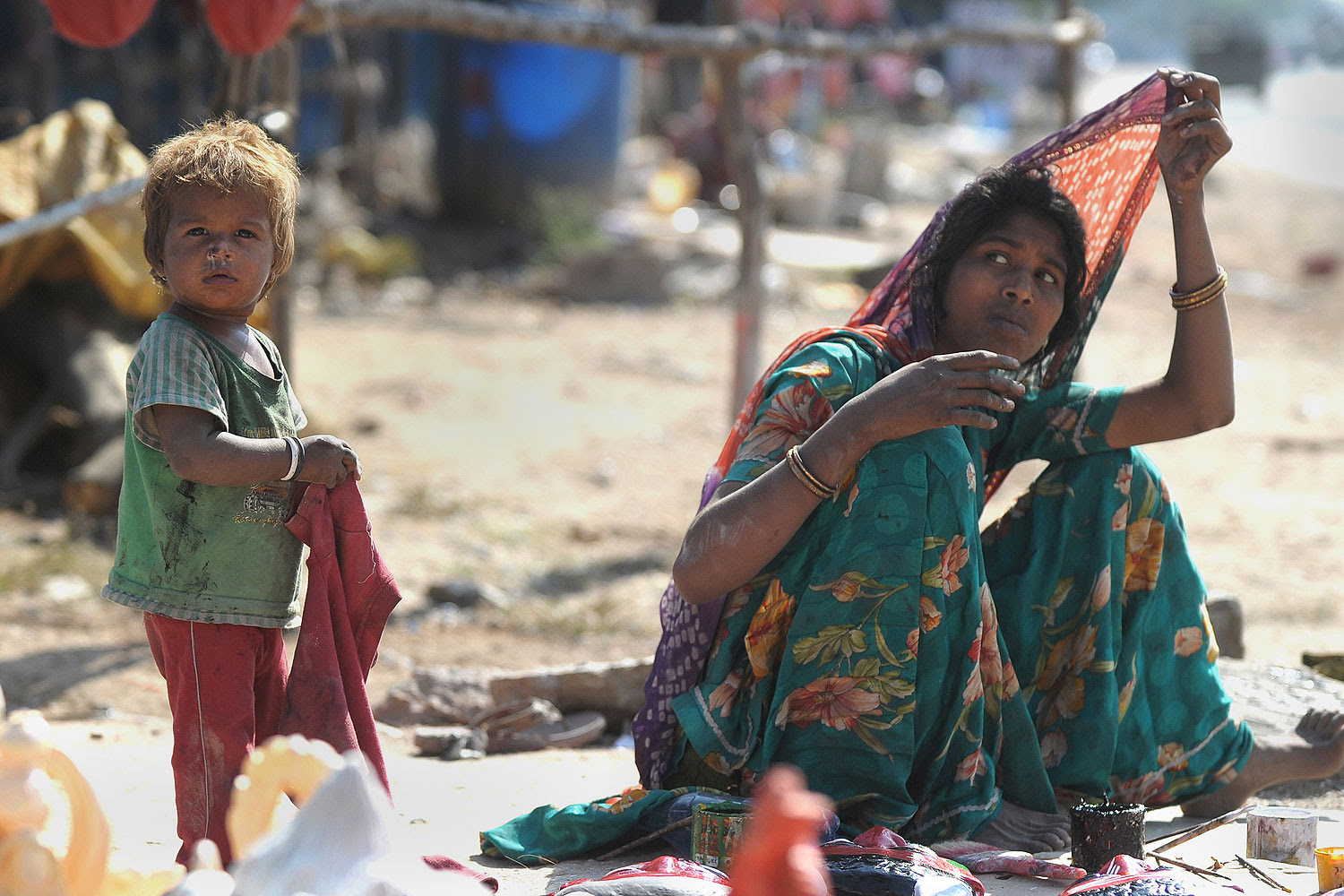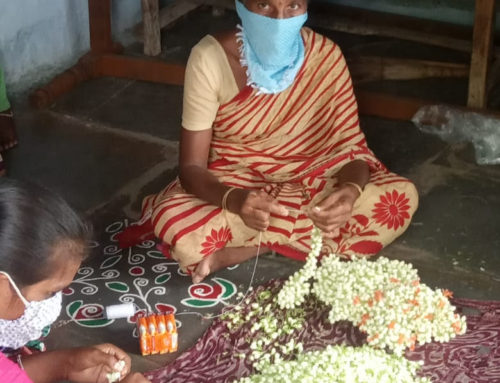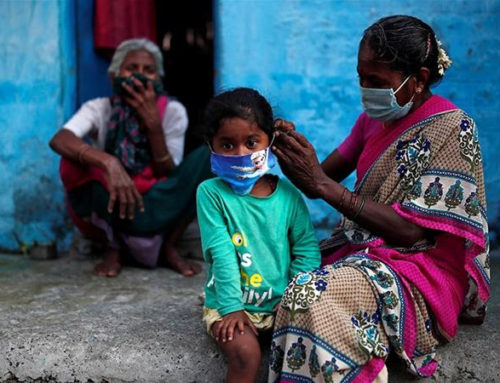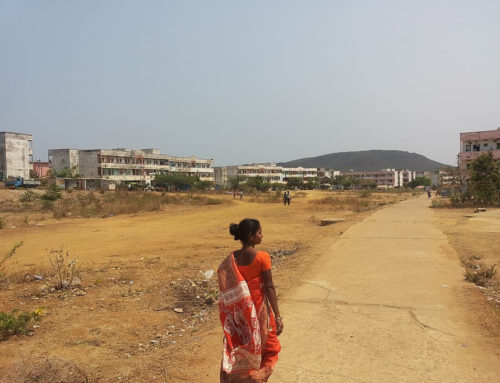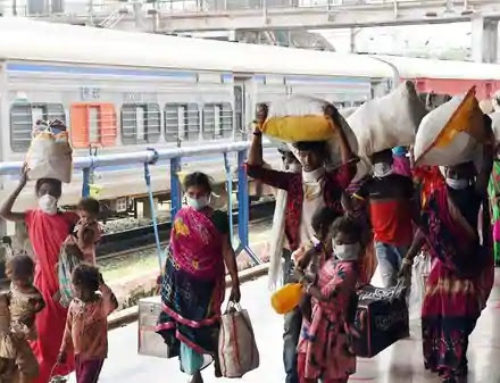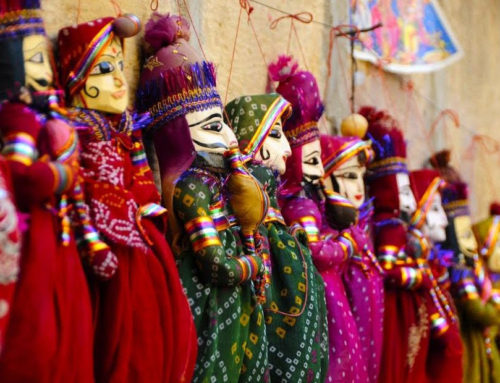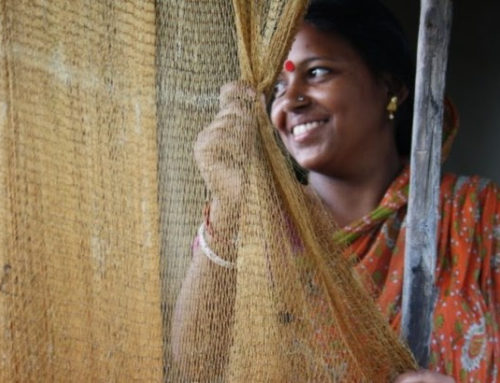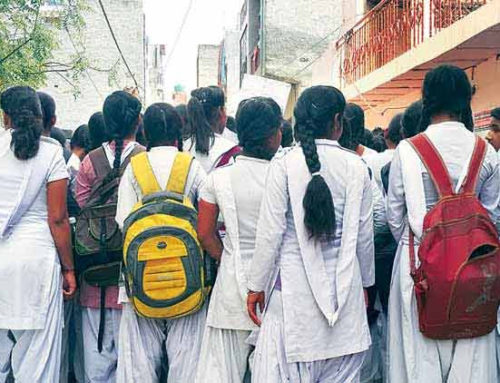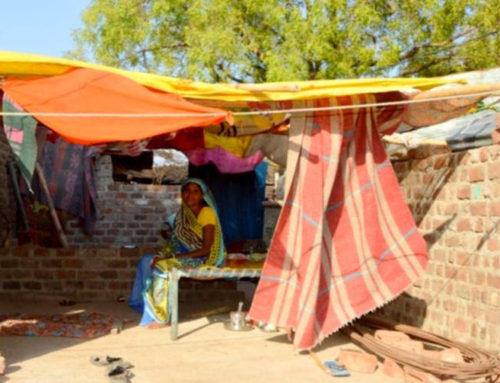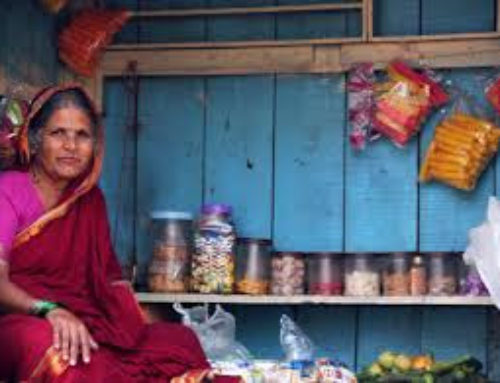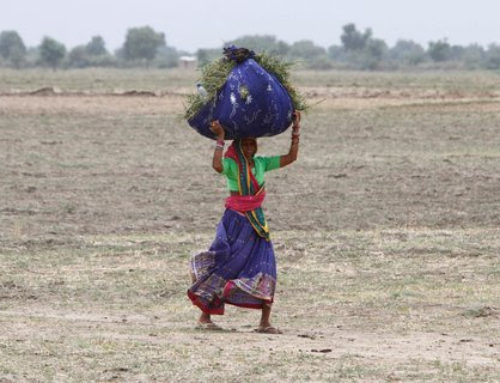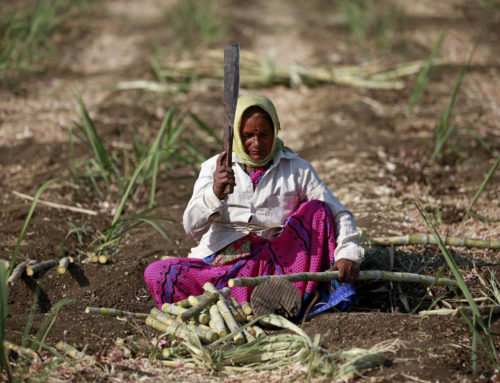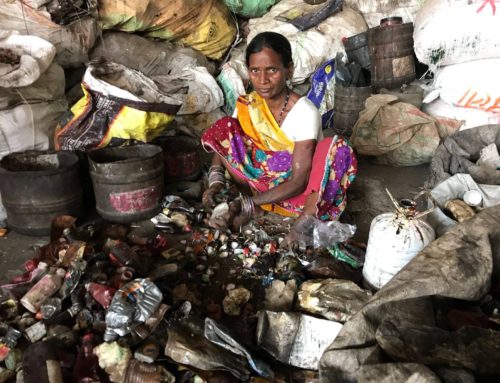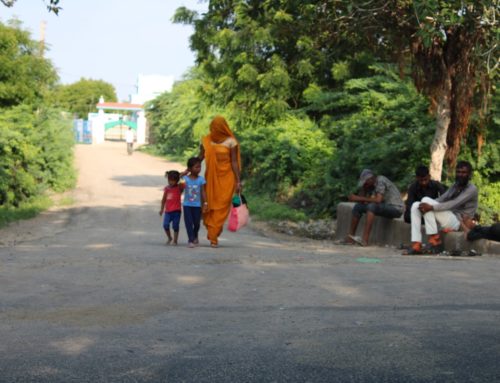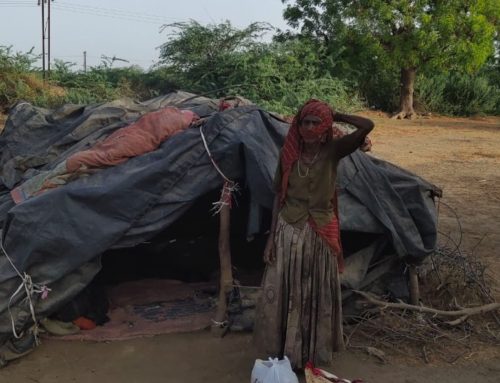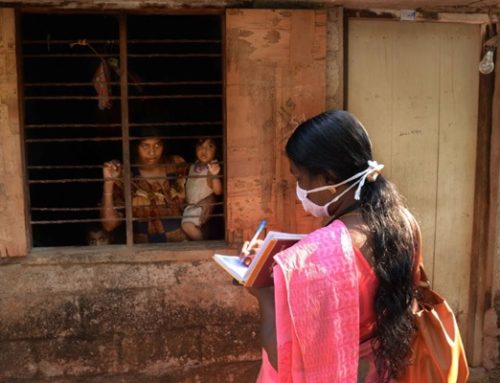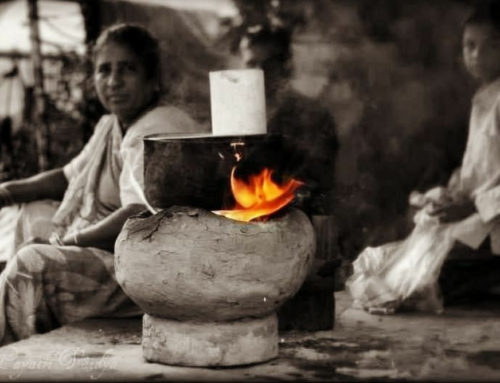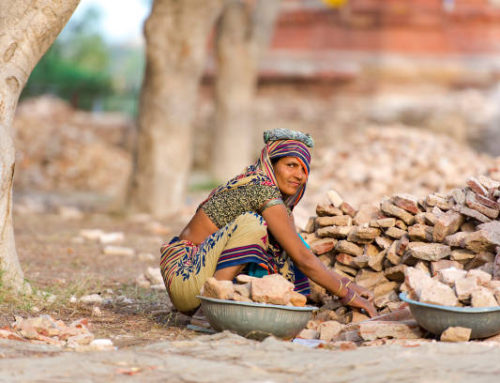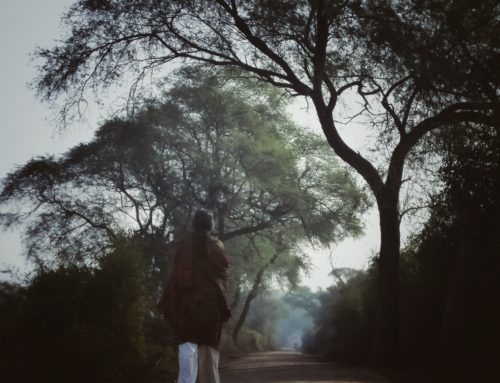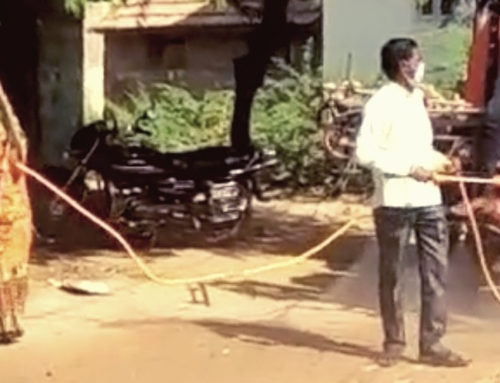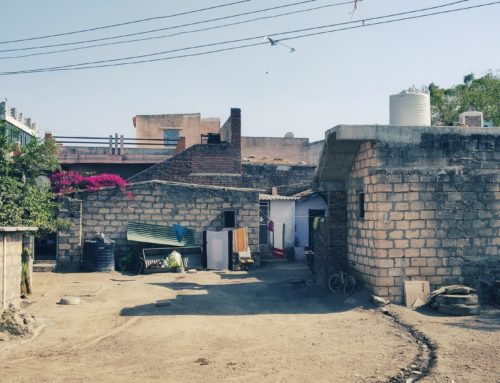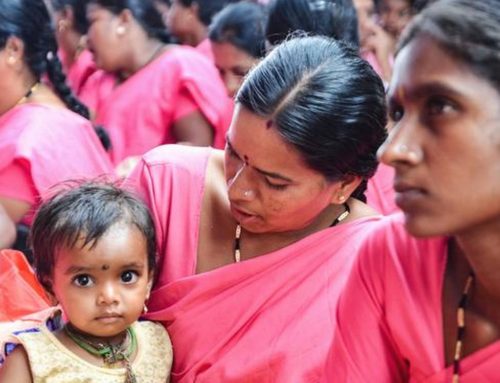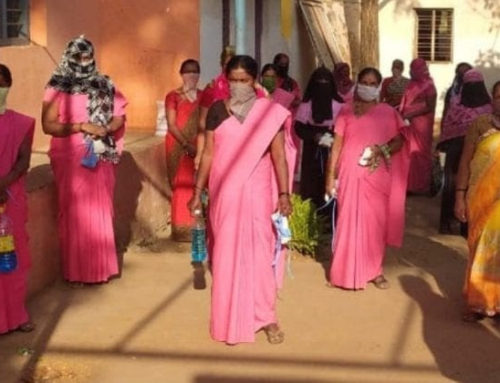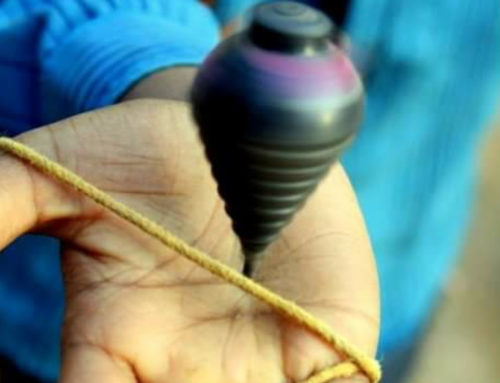Neelima was an agricultural labourer who would go to nearby farming villages – close to at least half an hour away – to work on fields. For a 9 hour work day, Neelima brought home a sum of Rs. 100 with a higher limit of Rs. 125 on certain good days. Now a mother of three, a son who is 8, a daughter of five and her youngest 1.5 years of age, she has had to dedicate herself to the care of her children and rely completely on the money her husband brings home. Parenthood which had already resulted in loss of livelihood and increase in dependability put Neelima in an even more vulnerable position when the lockdown hit and the family ran out of all income for unemployment of the husband.
An agricultural labourer himself, her husband Suresh, would bring home the same amount as Neelima during farming days which amounted to 2.5 months spanned across 3 agricultural seasons in a year. On other days he would try to pick up odd jobs which were very scarce. Majority of their income came from these 2.5 months of assured work.
She, with her family, lives in Bajana – a small village in Patdi, Gujarat in a one room kachcha house made of mud. She has a makeshift bathroom where she hangs a kapda on a standing charpai to make a private space for bath. She does her cooking outside the house. She walks 15 minutes to the field every evening for the lack of a toilet and also collects firewood during her walk back. With very few vessels to store water in, Neelima makes multiple rounds a day to collect water from a public bore well, a 10 minute walk, each way, from home.
Her share of ration from the government goes to her husband’s family which they sometimes get and sometimes don’t. Making ends meet with the help of food grains provided by the supportive village community, Neelima has slept empty-stomached for days on end. She and her family have not cooked a meal with vegetables all through lockdown, surviving only on pulses received as ration. They have also seen days where their children had to sleep hungry.With hunger in the house, tensions run high. But who can she tell….
Neelima’s story is not uncommon.

